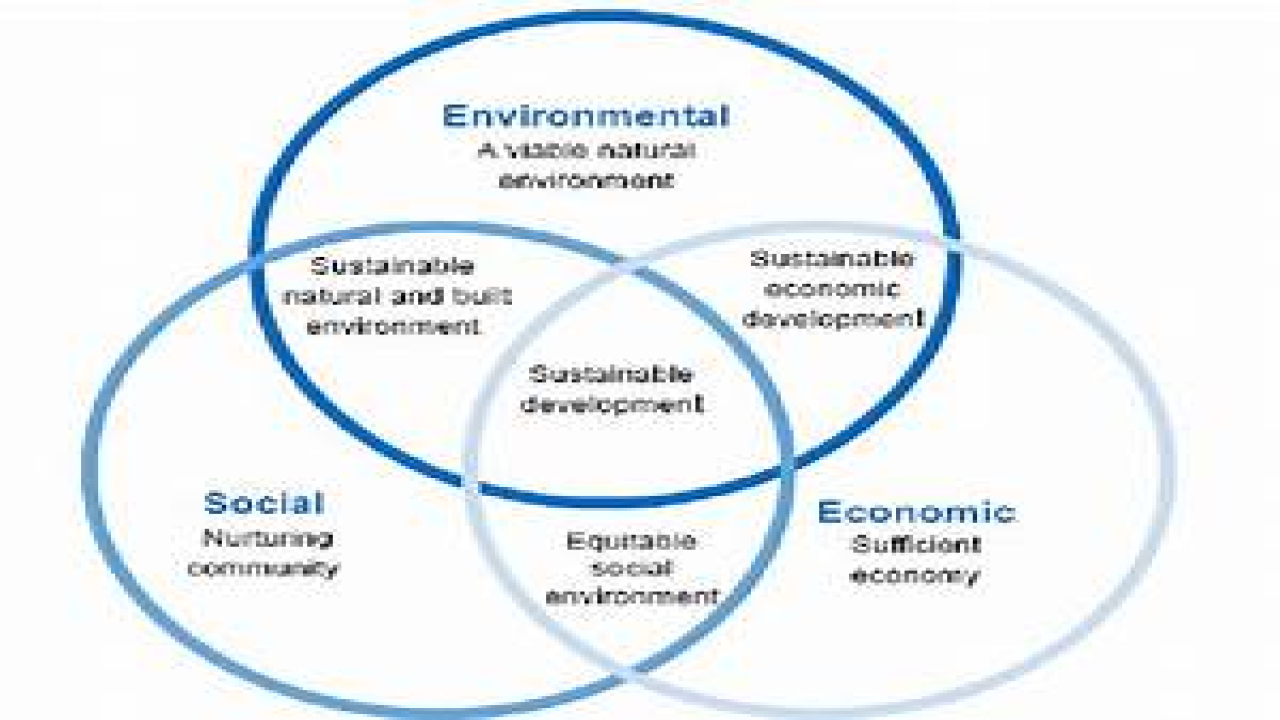Concept of sustainable growth and development
Sustainable growth and development refer to a development model that seeks to balance economic growth with environmental protection and social equity. This approach recognizes that economic growth must be sustainable over the long term and that it must not come at the expense of the natural environment or the well-being of future generations.
History of Sustainable Growth and Development
The concept of sustainable growth and development has its roots in the environmental movement of the 1960s and 1970s, which emphasized the need for a more sustainable and equitable approach to economic development. The publication of the Brundtland Report in 1987, which defined sustainable development as “development that meets the needs of the present without compromising the ability of future generations to meet their own needs,” was a significant milestone in the development of the concept of sustainable growth and development.
Types of Sustainable Development
Sustainable development can be broadly categorized into the following types:
- Economic sustainability: This refers to the ability of an economy to sustain economic growth over the long term, without compromising the natural environment or the well-being of future generations.
- Environmental sustainability: This refers to the ability of an ecosystem to sustain itself over the long term, without being degraded by human activities.
- Social sustainability: This refers to the ability of a society to meet the needs of its members over the long term, without compromising the well-being of future generations.
Examples of Sustainable Growth and Development
- Economic sustainability: In Denmark, the development of wind power has helped the country to transition to a more sustainable energy system, reducing its reliance on fossil fuels and promoting economic growth. Similarly, in Costa Rica, the development of ecotourism has helped to promote economic growth while protecting the natural environment.
- Environmental sustainability: In the United States, the development of renewable energy such as solar and wind power has helped to reduce greenhouse gas emissions and promote environmental sustainability. Similarly, in Indonesia, efforts to protect and restore critical ecosystems such as mangroves and rainforests have helped to promote environmental sustainability.
- Social sustainability: In Finland, the development of a comprehensive social welfare system has helped to promote social sustainability, ensuring that all members of society have access to basic social services. Similarly, in Bhutan, the government has developed a Gross National Happiness index to measure social well-being, emphasizing the importance of social sustainability in the country’s development.
Issues Posed by Sustainable Growth and Development
Sustainable growth and development pose significant challenges for the society, including:
- Economic impacts: Sustainable growth and development can lead to significant economic impacts, including disruptions to established economic systems, and potential economic costs associated with transitioning to more sustainable economic models.
- Environmental impacts: Sustainable growth and development can have significant environmental impacts, including the potential loss of jobs and economic activity associated with the transition away from fossil fuels.
- Social impacts: Sustainable growth and development can have significant social impacts, including the potential loss of jobs and economic activity associated with the transition away from fossil fuels, and the potential need to invest in social safety nets to support those affected by these changes.
Solutions to Sustainable Growth and Development Issues
Solving sustainable growth and development issues requires a multifaceted approach that involves individual actions, government policies, and international cooperation. Here are some potential solutions:
- Promote sustainable economic models: This can be achieved through measures such as promoting investment in renewable energy, promoting circular economies, and promoting sustainable agriculture and forestry.
- Address environmental impacts: This can be achieved through measures such as promoting conservation and restoration of critical ecosystems, promoting sustainable land use practices, and promoting sustainable transportation systems.
- Address social impacts: This can be achieved through measures such as promoting social safety nets to support those affected by the transition to sustainable economic models, promoting education and job training in green sectors, and promoting social equity and inclusion.
- Support international cooperation: Addressing sustainable growth and development requires global cooperation and coordination. This can be achieved through international agreements such as the Paris Agreement on Climate Change and the United Nations Sustainable Development Goals.


